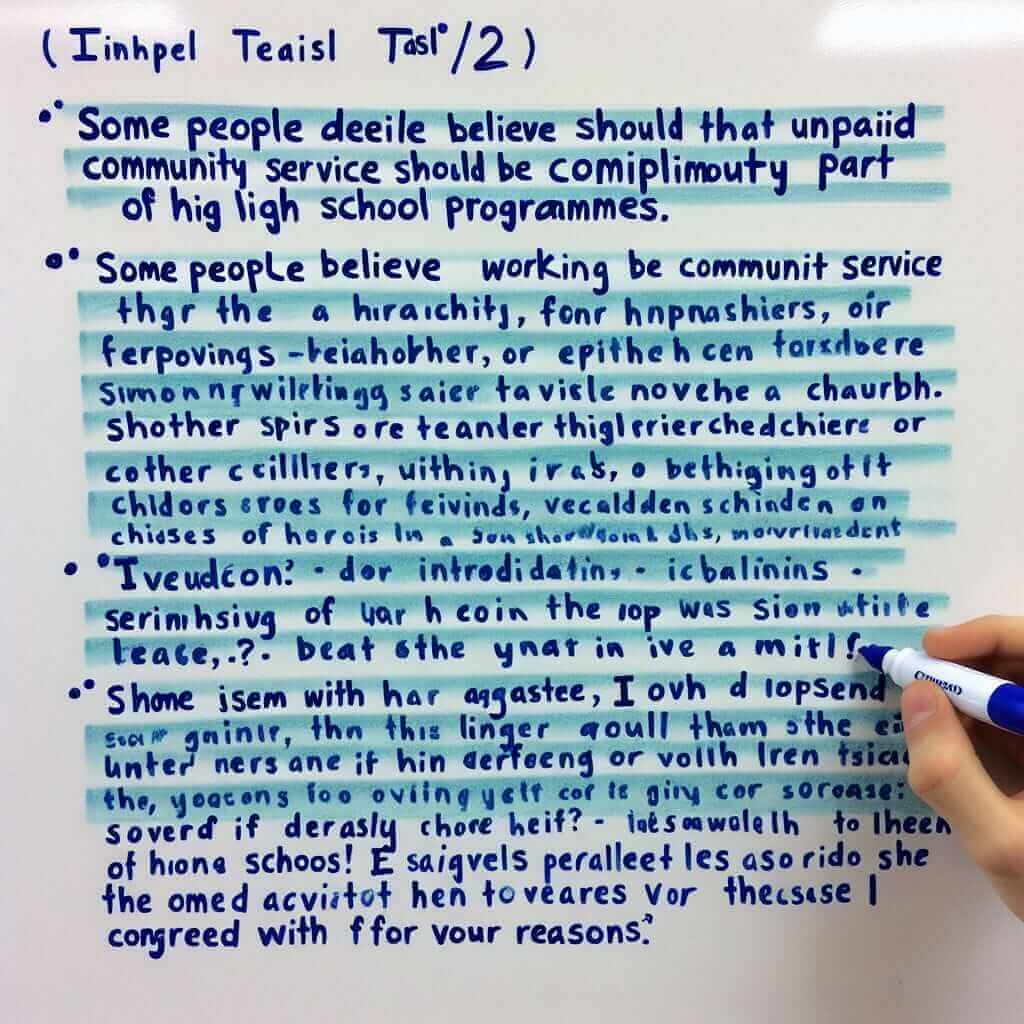As an IELTS instructor with over two decades of experience, I’ve witnessed countless students grapple with the writing section. It’s often perceived as the most challenging part of the exam, demanding not just language proficiency but also clarity, coherence, and a keen understanding of academic conventions. This comprehensive guide will delve into effective strategies on how to improve writing skills for IELTS, equipping you with the tools and techniques needed to excel.
Understanding the Importance of IELTS Writing Skills
The IELTS writing test assesses your ability to articulate ideas effectively in written English. It evaluates various aspects of your writing prowess, including:
- Task Achievement: Your ability to respond to the prompt fully and appropriately, addressing all its aspects.
- Coherence and Cohesion: The logical flow of your ideas and how well they are connected using cohesive devices.
- Lexical Resource: The range and accuracy of your vocabulary.
- Grammatical Range and Accuracy: Your ability to use a variety of grammatical structures accurately.
Improving your writing skills is not only crucial for achieving a high IELTS score but also for academic success and professional communication in English-speaking environments.
Effective Strategies to Improve Your IELTS Writing Skills
1. Master the Fundamentals of Grammar and Vocabulary
A strong foundation in English grammar and vocabulary is paramount for good writing.
- Grammar: Regularly review and practice different grammatical structures, especially complex sentences, tenses, and articles. Pay attention to subject-verb agreement, correct use of prepositions, and punctuation.
- Vocabulary: Expand your vocabulary by reading widely and learning synonyms for commonly used words. Focus on academic vocabulary and topic-specific words related to common IELTS themes.
2. Analyze High-Scoring Sample Answers
One of the best ways to understand the expectations of the IELTS writing test is to analyze high-scoring sample answers. Pay close attention to:
- Structure: How the essay is organized, including the introduction, body paragraphs, and conclusion.
- Language: The use of linking words, vocabulary, and grammatical structures.
- Task Achievement: How the writer effectively addresses all aspects of the prompt.
3. Practice Planning Your Essays
Before you start writing, spend a few minutes planning your essay. This includes:
- Analyzing the Prompt: Carefully read and understand the prompt, identifying key words and the type of essay required.
- Brainstorming Ideas: Jot down relevant ideas, arguments, and supporting examples.
- Creating an Outline: Organize your ideas logically into an introduction, body paragraphs, and a conclusion.
4. Practice Time Management
Time management is crucial in the IELTS writing test. Allocate your time wisely:
- Task 1: Aim to complete Task 1 within 20 minutes.
- Task 2: Allocate 40 minutes for Task 2, as it carries a higher weightage.
Practice writing essays under timed conditions to build your speed and stamina.
 IELTS Writing Task 2 Example
IELTS Writing Task 2 Example
Example from IELTS Writing Task 2
Prompt: Some people believe that the best way to improve public health is by increasing the price of unhealthy food. To what extent do you agree or disagree?
Sample Introduction:
The escalating prevalence of lifestyle-related diseases has ignited debate over effective public health interventions. One contentious proposition advocates for raising the cost of unhealthy food as a means to curb consumption and promote healthier choices. While this approach might seem appealing, I firmly disagree that it represents the most effective solution to enhance public health.
5. Seek Feedback and Learn from Mistakes
Regularly get your writing assessed by experienced IELTS instructors or English language tutors. They can provide valuable feedback on your strengths and weaknesses, helping you refine your writing skills over time.
Conclusion
Mastering IELTS writing skills requires a combination of focused effort, consistent practice, and expert guidance. By diligently working on your grammar, expanding your vocabulary, analyzing model answers, practicing time management, and seeking constructive feedback, you can significantly improve your writing proficiency and approach the IELTS exam with confidence. Remember, the key is to persevere and never stop refining your skills.


